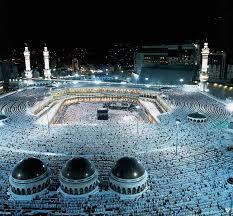Hajj Ban for Ebola-stricken Countries

“We have communicated the instructions to the officials of all ports of entry. We have trained our personnel on how to identify and deal with Ebola cases and control virus infection, should it happen," Saudi health ministry spokesman Dr Khalid Marghalan said on Monday, August 4.
Ebola is believed to have killed 800 people in the two Muslim countries of Guinea and Sierra Leone, in addition to Liberia since the outbreak began in February, according to the World Health Organization (WHO).
The Muslim-dominated Republic of Guinea remains the worst affected by the disease that was discovered in 1976 after an outbreak in the Democratic Republic of Congo.
Bracing for Hajj this year, Saudi heath ministry has supplied all its ports and airports with additional measures to secure a safe spiritual journey.
The outbreak has led to some restrictions on flights and trade in the region but international mining firms operating in the three countries say operations have not yet been affected.
United Arab Emirates was among the countries that halted flights to the effected African countries.
The contagious disease, which has no known cure, has initial symptoms that include headaches, muscle pain, conjunctivitis and weakness, before moving into more severe phases of causing vomiting, diarrhea and internal and external bleeding.
The fatality rate of the current outbreak is around 60% although Ebola can kill up to 90% of those who catch it.
Muslims from around the world pour into Makkah every year to perform hajj.
Hajj consists of several ceremonies, which are meant to symbolize the essential concepts of the Islamic faith, and to commemorate the trials of Prophet Abraham and his family.
Every able-bodied adult Muslim who can financially afford the trip must perform hajj at least once in a lifetime.
Source: OnIslam.net



